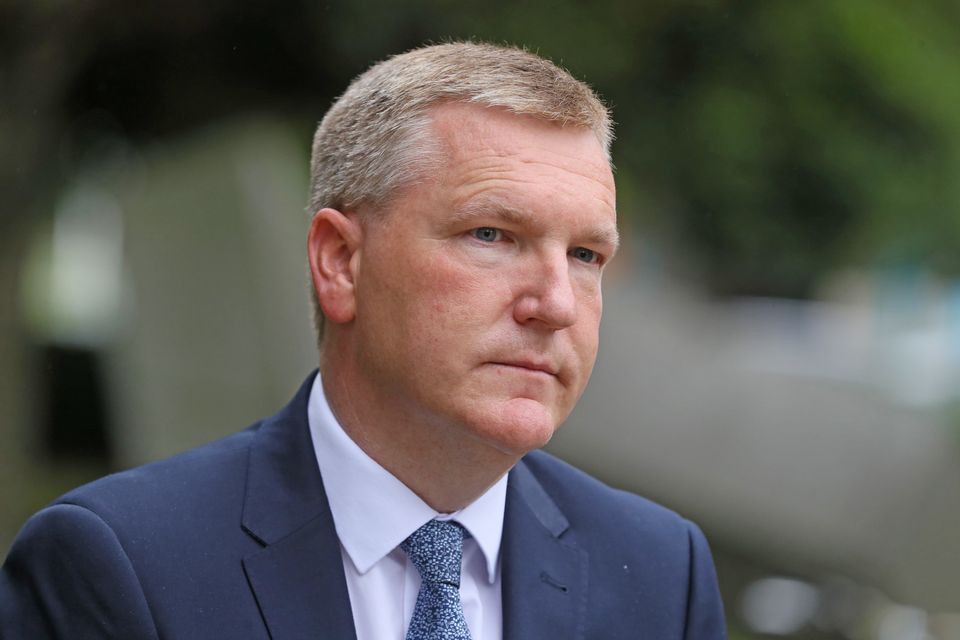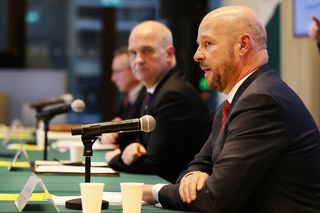Fresh spikes see key Government spending up 12pc this year
Finance Minister Michael McGrath. Photo: PA
Government spending increased sharply in the first four months of the year, running ahead of the growing tax take and on course to smash through previous records.
The latest Exchequer Returns figures from the Department of Finance show total expenditure to the end of April added up to €32.9bn. Gross voted expenditure, which includes spending on government departments and is determined by ministers, stood at €30.1bn for the four months – more than 12pc higher than the same time last year which was itself a record high.
The data provides the latest evidence the massive scaling up of public sector and public spending commitments over recent budgets is working its way through departmental spending.
Figures released last month by the Central Statistics Office (CSO) showed Government spending in 2023 was a third higher than it had been before the pandemic and more than €8bn up on the previous year.
Non-voted expenditure accounted for €2.8bn in the period, which was dramatically lower. But that swing was down to the parking of money in the National Reserve Fund in February 2023, which didn’t really reflect spending.
The good news for the public finances is that the tax take continued to hit new highs in the first part of this year, boosted by the flood of corporation taxes still flowing in increasing numbers from multinationals.
Even with spending hitting a high the Exchequer is running a surplus, on a 12-month rolling basis. However, on a standalone basis Government spending the first four months of the year outstripped income.
An Exchequer deficit of €1.2bn was recorded to the end of April. On a 12-month rolling basis, the Exchequer recorded a surplus of €3.6bn.
The numbers reflect tax receipts of €24.8bn collected by the end of April, which was up €600m on 2023 driven primarily by increased income tax.
The State’s non-tax income further boosting the overall position.
A fall in the cost of servicing the national debt also helped.
However, the most striking numbers are on the spending side. Exchequer expenditure to the end of April totalled €32.9bn, consisting of gross voted and non-voted expenditure of €30.1bn and €2.8bn respectively.
Gross voted current expenditure – which reflects the core of Government spending set under the Budget including public sector pay and the costs of state-provided services – rose to €27.6bn by the end April. This is up €2.3bn on the same period a year ago and is 2pc above “profile”, or allocated budget.
Gross voted capital expenditure – the cost of building houses, schools and hospitals and investment in technology and other infrastructure – was €2.6bn for the period. This is up more than 50pc on the same period last year, but coming in below profile.
The numbers for this year so far show the trends in the public finances that were in place last year are intensifying.
Total government revenue increased to €123.7bn last year, €7.8bn higher than 2022, boosted by a combination of higher corporate taxes paid mostly by multinationals and surging amounts of income tax paid by record numbers of people in work.
Total government expenditure rose slightly faster to €115.4bn, up €8.1bn on the previous year.
Join the Irish Independent WhatsApp channel
Stay up to date with all the latest news















